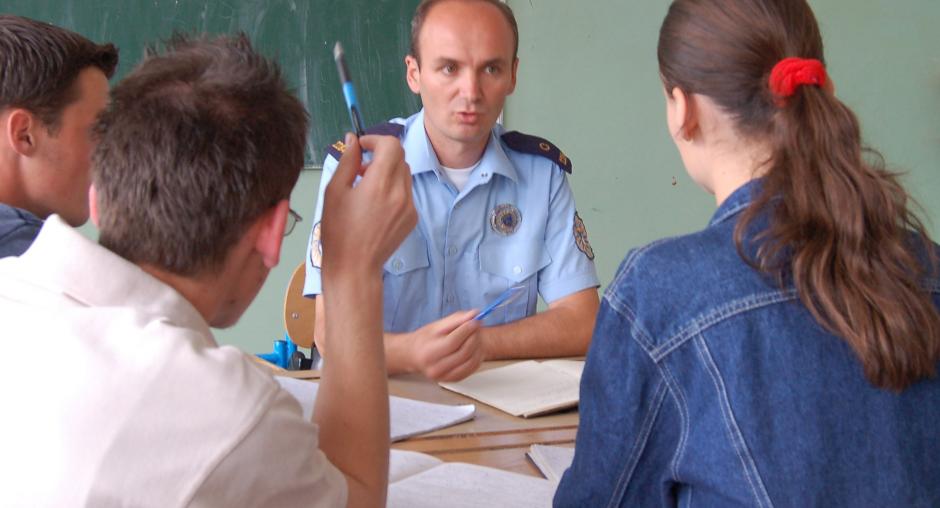OSCE helps boost community policing in Kosovo
The role of a community police officer
More than 130 police officers are assigned to community policing in Kosovo. Dealing with issues such as shoplifting, road safety for children, drug abuse prevention and inter-ethnic relations, officers need to be able to communicate effectively with people of different ages, ethnicities and backgrounds. They are also required to facilitate local meetings.
"We have contact with school teachers, young people, minorities, business owners, municipal representatives and people with special needs," says police officer Avni Zahiti, who works for the Mitrovice/Mirovica Regional Police Headquarters. "Our job is to bring them all around one table and help them identify security issues and find solutions."
Developing new skills
Since 1999, the OSCE Mission in Kosovo has been helping to develop a democratic police service. In 2000, new cadets began getting an introduction to the concept of community policing through the basic KPS training programme.
The introduction, however, was not enough. "Police officers lacked the specific skills they needed to do their jobs properly," says Lieutenant Salih Dragidella, Commander of the Community Policing Co-ordination unit at KPS headquarters in Prishtine/Pristina.
So in September 2005, the KPS and the Mission began developing an advanced training course to help officers work more effectively with their communities.
"The new course explains the community policing philosophy and aims to build communication, problem-solving and planning skills," says Sergey Sidorov, a community policing instructor working with the OSCE-run Police Academy. With 40 hours of instruction, special attention is also given to working with children and young people.
"It is important for the police to build good relations with local community members while they are still young," adds Sidorov. "This way, we can help them avoid bad influences and turning to crime."
Zahiti, one of the 19 officers who completed the course in March 2006, says that implementing the community policing concept was hard at first, but the KPS is getting better at it. "With this training, I feel better prepared to work with the various interest groups."
Putting theory into practice
Encouraged to develop a motto during the course, participants chose "Respect people and people will respect you!", demonstrating a strong understanding of what community policing demands.
Role playing is one of the most important parts of the course. It encourages officers to consider the perspectives of all parties affected by a problem, and as a result, to find more effective solutions.
Zahiti agrees the course was useful: "It helped us test the theory of community policing in practice."
Participants also developed projects addressing issues such as Roma integration, traffic and river safety, and protection from stray dogs. The projects, which were presented on the last day of the course, are now being put to good use in the officers' communities.
The bigger picture
Since the Police Academy was established by the OSCE in September 1999, it has been providing courses on a wide range of topics, including forensics, interview techniques, defence tactics, conflict intervention, the handling of refugees and the police code of conduct. So far, 7,573 officers have gone through the basic police training programme and 61,458 have attended a variety of specialized courses ranging from crime investigations and forensics to riot control and negotiation techniques.
The advanced community policing course is being added to the group of specialized courses. Over time, all current and future officers assigned to these duties will be required to complete it.

